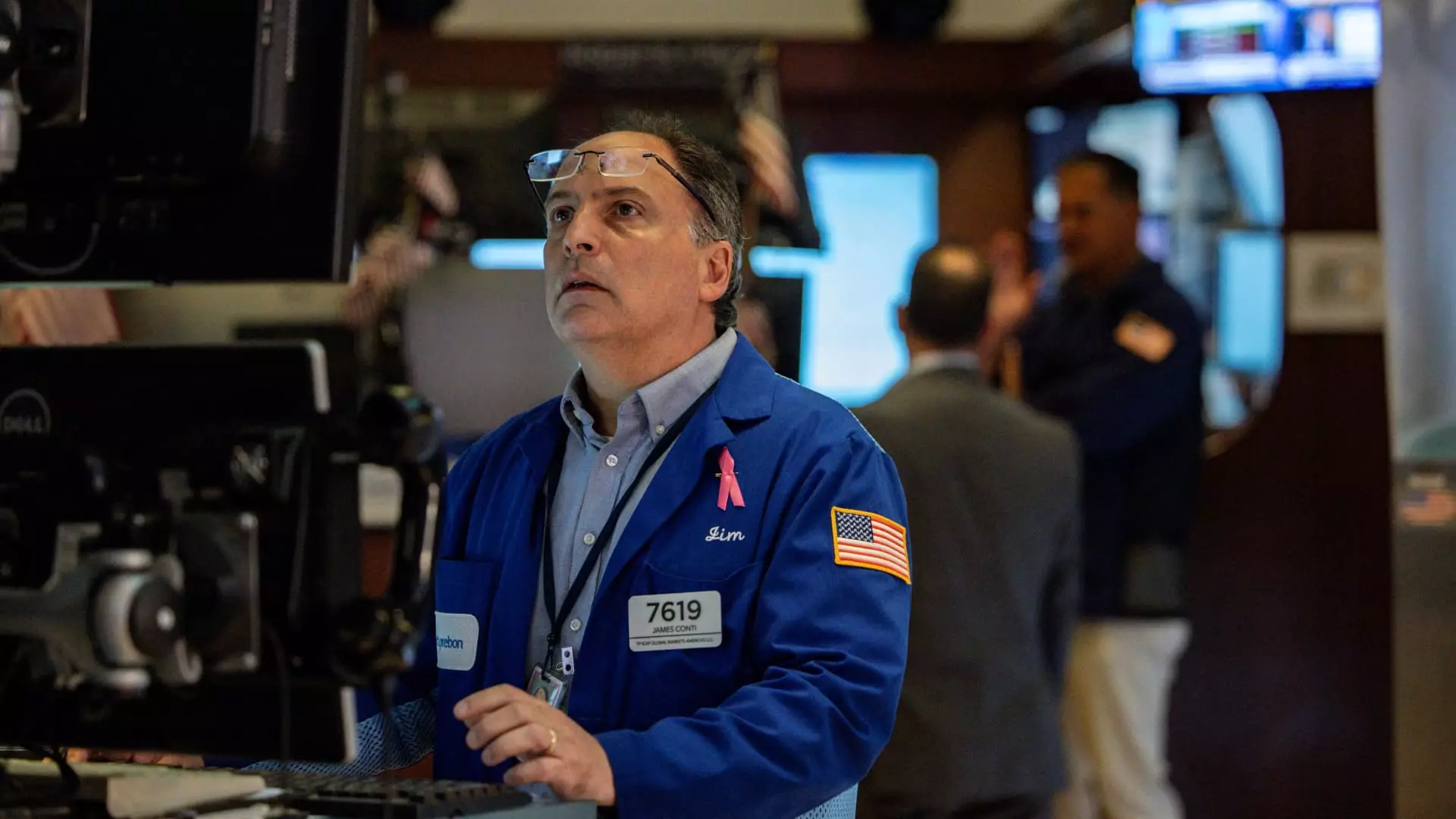In recent weeks, the stock market seemed to cling to a fragile optimism, rallying to new heights and dismissing looming trade tensions as mere temporary setbacks. Investors basked in the illusion that economic growth and corporate profitability would withstand the brewing storm, but the latest developments paint a starkly different picture. The sharp decline on Friday, following a record-high session only a day earlier, exposes the vulnerability of markets overly confident in the face of escalating geopolitical conflicts. The narrative of resilience now feels increasingly hollow, revealing how susceptible economic stability is to the unpredictable tides of policy shifts and protectionist maneuvers.
This week’s markets demonstrated a dangerous complacency, where the praise of record highs ignored the warning signs of an impending backlash. The surge in stock prices was, in part, driven by naive optimism and a disregard for the rising trade barriers threatening global commerce. When President Donald Trump announced a 35% tariff on Canada and hinted at broader protections, it shattered investor confidence that had briefly been restored. Such aggressive protectionism hampers the delicate balance of international trade, risking retaliation and economic stagnation. This disconnect underscores how markets often overlook the long-term consequences in favor of short-term gains—an attitude that can prove costly when the underlying fundamentals start to fray.
Trade War Escalation: A Reckless Gamble
The escalation of the trade dispute is not merely a salvo of tariffs; it is a gamble with far-reaching repercussions. The introduction of tariffs on critical commodities, such as copper, and the threat of indiscriminate tariffs on other countries, signals a shift away from diplomacy toward economic confrontation. The administration’s reliance on tariffs as a tool to leverage negotiations might generate some short-term political points, but it dangerously underestimates the potential for global economic fallout.
President Trump’s emphasis on fentanyl as a justification for tariffs on Canada reveals a troubling prioritization—weaponizing border and trade issues for political leverage instead of pursuing genuine resolutions. This posture risks poisoning international relations while inflaming the rhetoric of nationalism and protectionism. The uncertainty surrounding tariffs on the European Union compounds the chaos, as markets are left guessing whether global trade will become a free-for-all or be restrained by increasingly punitive measures. As speculation about future tariffs mounts, investor anxiety is unavoidable, and the risk premium in markets is rising, with no clear end in sight.
The Fragile Foundations of Market Confidence
Despite moments of optimism, the underlying health of the economy is not as robust as market indices suggest. The recent gains were driven by an illusion of stability, fueled by central bank interventions and temporary relief rallies, rather than genuine economic growth. When protectionist policies threaten to cut off supply chains, increase costs, and stifle innovation, the fundamentals start to erode.
The week’s developments cast doubt on the sustainability of the current market rally. Investors, eager to maintain their gains, are walking a tightrope, tethered to the hope that diplomacy will prevail and tariffs will be reversed or softened. But such hope may be misplaced; history teaches us that trade wars rarely end quickly and often leave scars that take years to heal. The market’s resilience is tested by the realization that economic risks now lie not just abroad but also within the very policies meant to promote growth.
The Broader Implications for Society
This surge in protectionism does not just threaten markets—it jeopardizes jobs, raises consumer prices, and destabilizes global supply chains. For center-leaning liberals committed to a balanced approach, this situation is deeply troubling. It underscores the importance of thoughtful diplomacy over reckless tariffs. When policymakers resort to punitive measures without a clear strategy, it’s ordinary citizens who bear the brunt, facing higher costs and employment uncertainties.
The administration’s current approach reveals a dangerous lack of foresight. Trade should be a tool for cooperation and mutual growth, not a weapon wielded in a zero-sum game. A more measured, centrist strategy would focus on bipartisan efforts to address global challenges like fentanyl trafficking, climate change, and economic inequality—issues demanding cooperation, not confrontation. The market’s recent swings are a stark reminder that policy choices rooted in short-term populism can destabilize the economy and threaten long-term stability.
Given the volatile landscape ahead, it’s critical for investors and policymakers alike to question the narrative of unwavering confidence. Markets are no longer resilient in the face of reckless trade policies—they are fragile and vulnerable, exposed by a pattern of confrontational tactics that threaten to ignite a broader economic crisis. The illusion of a limitless climb must be replaced with cautious realism, centered on restoring prudent diplomacy and long-term stability.

Leave a Reply